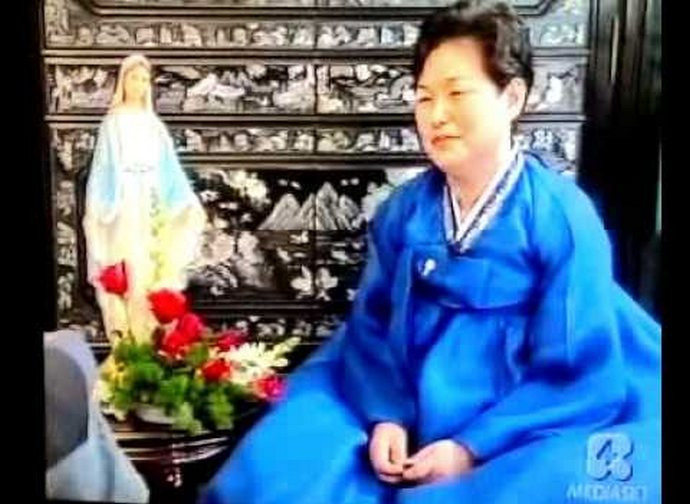Asian bishops excommunicate pilgrims who visit Marian Naju shrine
The latest two pronouncements come from the bishops of Malaysia and Singapore. The continuing influx of pilgrims to the shrine, which was the site of alleged Marian apparitions in the 1980s and that were denied by the local bishop, is worrying Asian bishops.

A Malaysian archbishop has joined his Singapore counterpart in warning Catholics against visiting the contentious Naju Marian shrine in the Archdiocese of Gwangju, South Korea, stating that those who persist in doing so would be excommunicated, UCA News reported.
Archbishop Simon Poh of Kuching banned Catholics from visiting Naju, urging his faithful to visit only officially acknowledged Catholic pilgrimage sites. This decision came after the Malaysian prelate verified the issue directly with former Gwangju Archbishop Hyginus Kim, who maintained that visits to Naju remain banned. “Catholics are not allowed to join activities or pilgrimages to Naju as this entails an automatic excommunication,” Poh penned in the Archdiocese of Kuching's publication Today’s Catholic.
“Archbishop Simon Poh invites all Catholics to become Pilgrims of Hope. For the remaining two months of this Jubilee Year, Catholics are instead encouraged to make pilgrimages and pray at designated churches in Malaysian Arch/Dioceses, as well as recognized Catholic pilgrimage sites," the letter read.
In October 2025, the Singapore Archdiocese likewise published a chancery notice cautioning Catholics against visiting Naju. “Please note that the latest response from the Dicastery for the Doctrine of Faith states clearly that the clergy, religious, or laity who preside over or attend the celebration of the sacraments or sacramentals, against my (Victor Manuel Cardinal Fernandez) prohibition, incur a latae sententiae excommunication (Can. 1336, 1364)," the notice, signed by Singapore priest Fr. Terence Pereira, declared. “The faithful are reminded that these false teachings and associated devotional material should not be promoted or distributed,” the October 3 statement read.
On October 31, the Archdiocese of Singapore once again reiterated the ban on visiting Naju in another statement that read: “Those who continue to visit the center in Naju where the alleged visionary continues her activities against the guidelines of the local Ordinary in Korea, incur an automatic (latae sententiae) excommunication.” “All faithful who have previously visited the centre must stop doing so, and approach a priest for the sacrament of reconciliation for the excommunication to be lifted,” said the statement. “Those who are planning to visit the centre should desist.”
In 2024, the Archdiocese of Gwangju in South Korea released a letter warning clergy, religious and laypeople to cease promulgating devotion regarding alleged Marian apparitions in Naju. Moreover, the archdiocese warned Catholics about ex-priest Alexander Kim Dae-sik who was expelled from the Salesian congregation in 2022 due to his actions in promoting devotion to the controversial and unapproved Naju site as well as his persistence in giving sacraments illicitly and without bishop approval at private venues.
The so-called Marian apparitions at Naju dates to the 1980s when Julia Kim, a mother of four, alleged she had a vision of Jesus with his Sacred Heart bleeding in 1982 and asking for the conversion of sinners. Kim also alleged that her statue of the Virgin Mary had begun weeping tears and excreting fragrant oil, saying that she had received messages from the Virgin Mary over decades, and said she had experienced Eucharistic miracles.
Over time, Kim’s statue became known locally as "Our Lady of Naju," and has attracted pilgrims, mostly from Asia, ever since. Kim herself has become known as "Mama Julia" by her followers.
Subsequently, the Archdiocese of Gwangju, which contains Naju in its territory launched a probe into the alleged miracles at the site. Eventually, In 1998, the then-Archbishop Victorinus Youn Kong-hi of Gwangju dismissed Kim's claims of miracles, stating that these so-called “miracles” were not of supernatural origin. Visiting Naju and believing in the supposed miracles at the site was "an act of breaking the unity of the faith of the Church," Youn declared at that time. Once again, the Archdiocese of Gwangju declared that the Church did not approve of “the Naju phenomenon" and that Catholics were forbidden from visiting the site.
